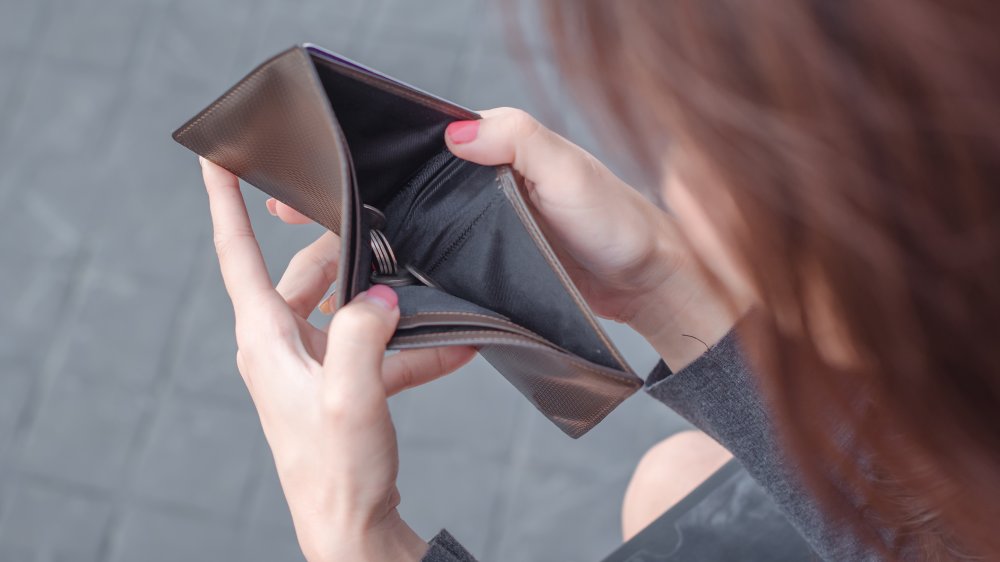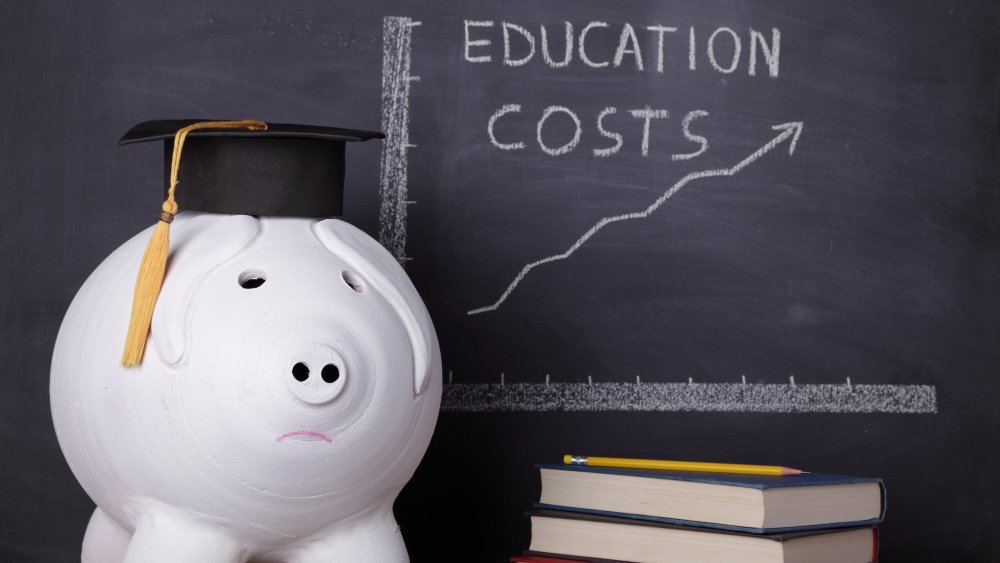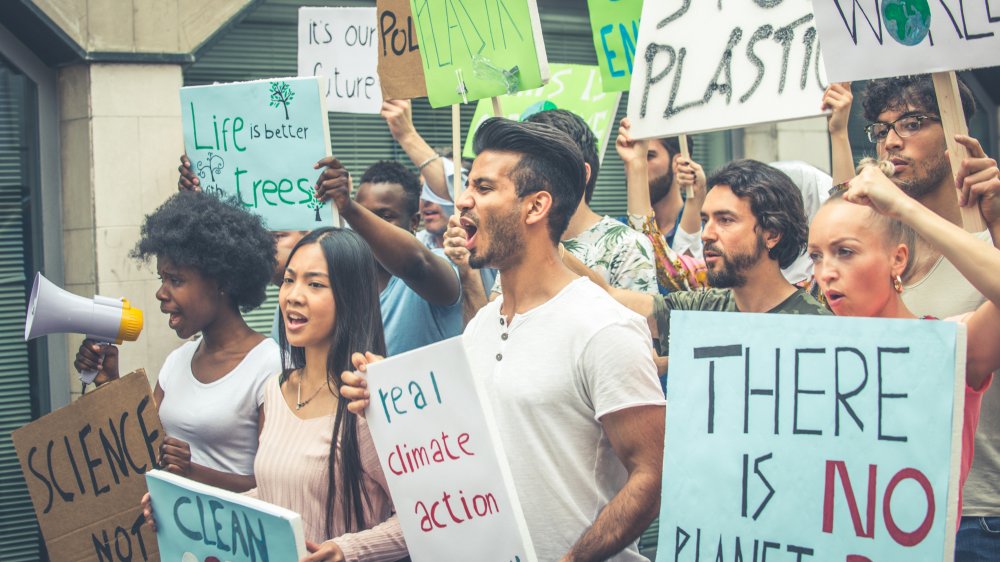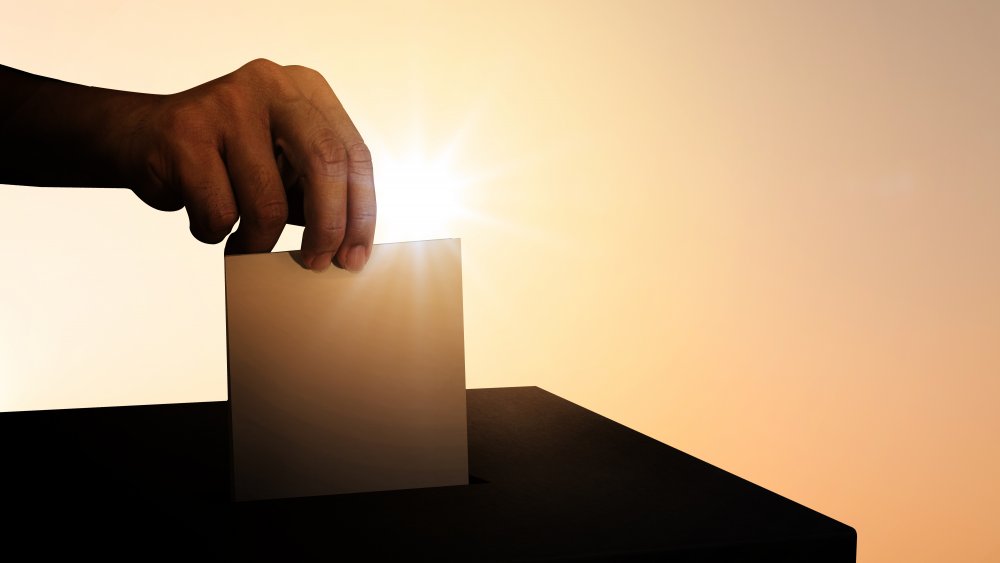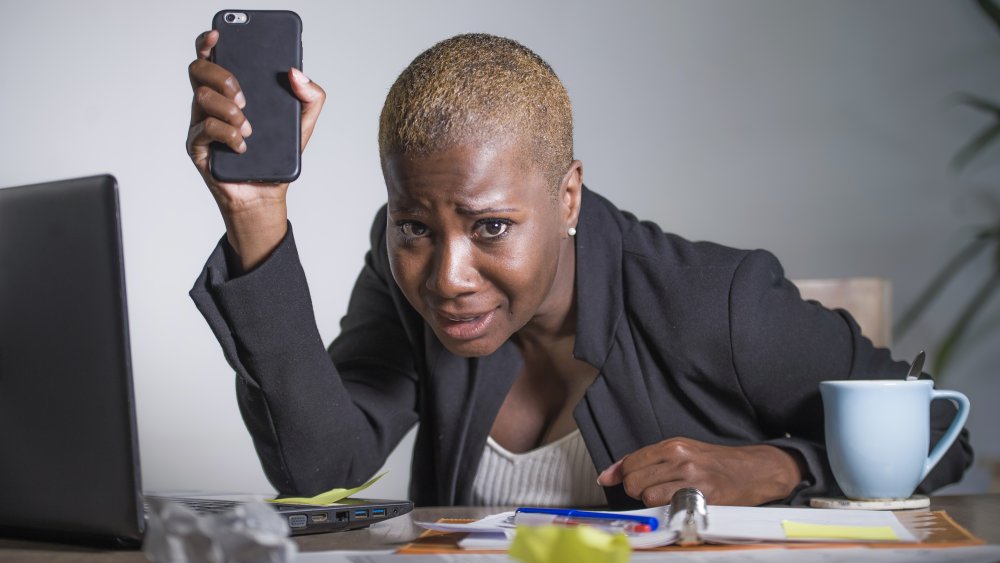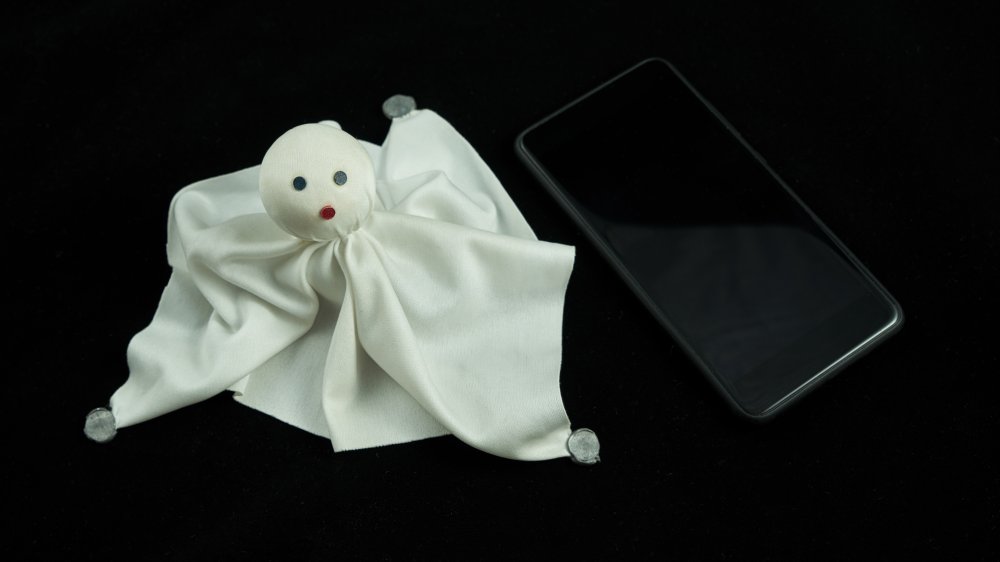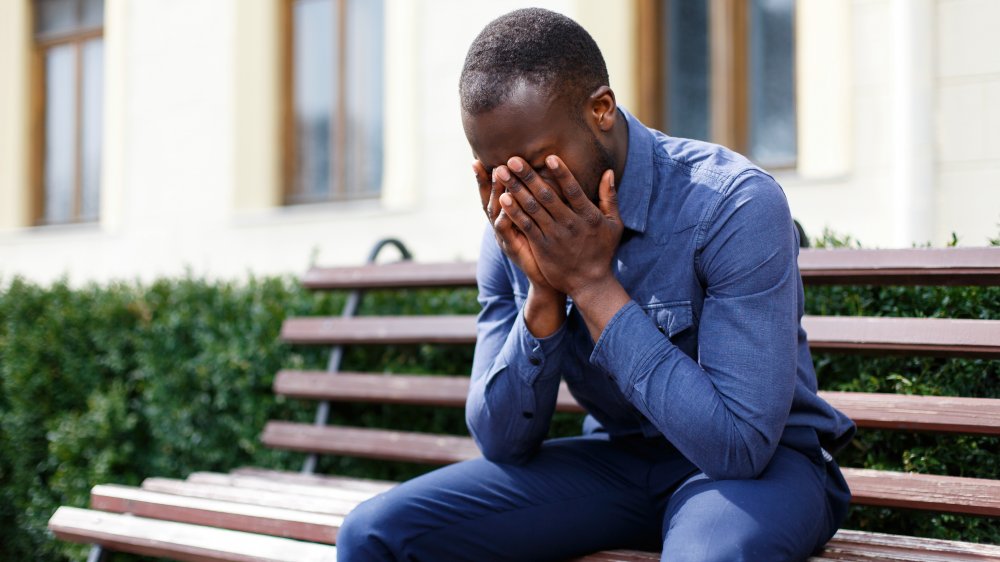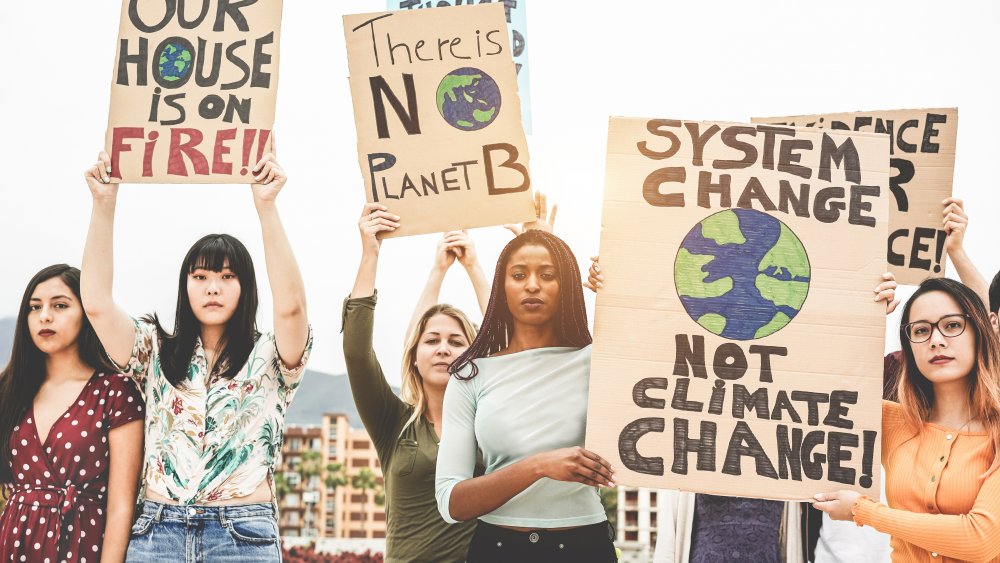The Worst Things About Being A Millennial
The 2010s have come and gone. Another decade is over, folks. And as Millennials stand poised to become the biggest living generation in the United States — as well as already being the most diverse U.S. generation in history — they should all give themselves a pat on the back ... because jeez, did everybody in other age ranges spend the last 10 years hating on them, or what?
Okay, sure, generational warfare is cyclical. Old peeps always say how young peeps are ruining the world. The level of anger funneled at Millennials, though, was pathological. Listen, if you ever wonder how "OK Boomer" became a thing, it has a lot to do with today's young adults being called "lazy" or "entitled" after working 60 hour weeks. This kind of criticism gets old, no pun intended. Here are some examples of the various accusations, judgments, and hostility that Millennials have grown tired of.
If you're a Millennial, you get blamed for everything
Ever since Millennials came of age, they've been used as a scapegoat for every perceived problem in society. Seriously, if you've ever tried typing "Millennials are ... " into Google, you know all about the kind of nonsense that fills the internet. Remember when Millennials were blamed for Ruby Tuesday's financial hardships? Yeah, it happened. Don't forget how Millennials have also been accused of killing mayonnaise, destroying the car industry, murdering paper napkins, messing with the movie business, and ruining golf. Wow, Millennials must sure be rotten, eh?
Or maybe, just maybe, the establishment has been bullying this generation for over a decade, and as MarketWatch points out, blaming the failure of various businesses, industries, hobbies, or trends on a new flock of people who (gasp!) prefer other businesses, industries, hobbies, and trends. Just like, you know, every new generation in history has done before, and will do in the future. Besides that, many of these cultural shifts are more economic than anything else: as Malcolm Harris points out, Ruby Tuesday isn't struggling because Millennials are sinister creatures, but rather, because people have less time and money for such establishments, particularly in comparison to cheaper, faster, and healthier options like Chipotle.
Nonetheless, this blame game is something that every Millennial encounters constantly, wherever you go, to the point where it sometimes feels like you've stepped into a surrealistic black comedy play, where you're the accidental antagonist.
There are false Millennial stereotypes up the wazoo
Most stereotypes slapped on Millennials are objectively wrong, as the Guardian points out. The whole notion that Millennials are entitled, carefree job hoppers simply doesn't square with the fact that, as a demographic, they've proven themselves as extremely hard workers ... despite being underpaid, overworked, and exhausted. Ever stood in line at the grocery store at the end of a 60+ work week, getting ready to spend half your paycheck, while somebody rants about how lazy you supposedly are? Not fun.
Now, sure, Millennials certainly are less likely than previous generations to spend their lives at a crappy, boring job. Want to know why? Because the wages a Millennial gets from said crappy job are proportionately lower than grandpa's were. Once you combine that with inflation, higher living costs, and student loans, it's easy to see that this isn't an issue of a generation's work ethic, but rather, work that is either more fulfilling, or at least has better salary. That isn't entitlement. It's pragmatism.
Want to hear another stereotype proven wrong? While some people love to say that Millennials are all moving back into their childhood homes, mooching off their parents, BuzzFeed points out that the actual data is surprising: in reality, for all the Millennials who are supported by their Boomer parents, an equal number of Millennials are financially supporting their parents. Huh. A 32-year-old paying the rent for their 65-year-old dad doesn't really sound "entitled," now does it?
You've got two kids and a mortgage, but people still think Millennials are in high school
C'mon, news media! If you're going to section people off into age groups, at least get them right.
See, peppered among these "Millennials are ruining ..." articles, you'll often find references to whatever weird things the kids these days are doing, like eating Tide Pods (though that itself was a serious exaggeration). The problem? These kids aren't Millennials. While all these generational distinctions are fairly loose, the US Census defines Millennials as those who born in the eighties and nineties, meaning these "meddling kids" are now married, hardworking homebodies who get excited about buying cast iron frying pans at yard sales, and/or waxing nostalgic about the good ol' days of LimeWire. Sorry, it's true.
Who are the new kids on the block, then? They're actually quite different from Millennials, as Vox points out, and highly impressive in their own ways. Currently, they're being called the decidedly less-than-creative title of "Generation Z," but seeing as Generation Y didn't stick for Millennials, don't expect this one to, either. Something better will pop up eventually, but so far, the best suggestion came from a Gen Zer named Alexandra Santina, according to the New York Times, who suggested that Gen Z be named "Generation Scapegoat," since it'll highlight exactly what the old folks are doing whenever they decide to start blaming Generation Scapegoat for all the evils of the world.
Millennials are broke (and getting broker all the time)
In the midst of Amazon Prime deliveries and smartphone advances, it's sometimes easy to forget how badly the economy crashed just a little over a decade ago ... unless you're a 30-something adult, that is, because the so-called "Great Recession" hit Millennials like a sledgehammer, and never stopped hitting. Never forget, Millennials grew up in the booming nineties, being promised that massive success was just a college degree away, only to graduate in the face of crippling debt, stagnated wage growth, a ridiculously high cost of living, and the worst financial situation for any young U.S. generation since the Great Depression. Bummer, dudes.
As the Atlantic puts it, not only did the economy throw Millennials under the bus, but it's now trying to blame Millennials for their own hardships. Now, this happens to every generation, but the boom-bust-blame cycle that Millennials faced was uniquely rotten. In 2018, Pew Research found that for the vast majority of American workers, real wage growth had barely budged in 40 years, with only the highest tier of workers seeing wage gains. Ouch.
The great college scam
Wonder why Millennials take so much longer to buy cars and houses, as NPR points out? Three words: student loan debt. It's the great bogeyman of Millennial life, and if society doesn't change, the problem is only going to get worse. Way worse.
Millennials were conditioned to think of college as the only way to get a "real" career, but you just need to meet one fast food employee with two college degrees to know how deceptive this concept proved to be. These days, once they've got a diploma in hand, Millennials make an average salary of only $35,592 a year, according to Business Insider, which is 20 percent lower than the average salary for a Baby Boomer at the same age. Now, combine that number with the average 2018 student loan debt of $29,800, and it's like rubbing salt in the wound. Want to make the burn even worse? Well, one Millennial interviewed by CBS News, for instance, reported a student loan debt of $134,000, which is pretty much the price of a house. These horrifying numbers are just a fact of life for most Millennials, and it's the major factor preventing so many from economically succeeding at the pace that past generations were able to.
Climate change fears are deadly serious to Millennials
Climate change is a real phenomena that people used to think was fake, and though climate scientists have sounded the alarm for a long time, politicians and giant corporations muddied the waters so much that older generations wasted decades "debating" whether it was something to worry about or not.
Millennials, though, aren't confused. These younger folks — I.E., the ones who will have to face this problem firsthand and suffer the consequences of the past century's environmental indiscretions — don't need to be convinced of climate change, because 70 percent of them are already freaked out about it, according to Yale. And while, yes, most Millennials typically espouse left-leaning, progressive politics, Pew Research found that even politically conservative Millennials were far more likely than their older counterparts to attribute global warming to human activity. Over half of Republican Millennials, in fact, believe that the U.S. government is doing too little to address environmental concerns.
So, for Millennials, climate change isn't a partisan issue. It's a real issue, and a ridiculously stressful one at that, which influences everything from home purchases to decisions regarding having children. It's no surprise, then, that three out of four Millennials suffer from "ecoanxiety," causing loss of sleep, stress, and unease, according to a 2018 survey by Swell Investing,
Millennials get politically sidelined in subtle, underhanded ways
Everyone loves to claim that Millennials don't vote. They're "apathetic," people say. This stereotype seems awfully weird, though, considering how politically active Millennials have become in the last few years, with all their protests, outcries, and volunteering. When you look at the facts, actually, Millennials have become the generation that generates the biggest social changes in society, as Vice declared in 2017.
Here are two words that crusty old politicians don't like hearing you mention, though: voter suppression. When people vote in a way that the powers-that-be don't like — particularly when it comes to non-Caucasian populations, of any age — a few key methods are employed to lock people out of the voting booths, as Hanna Brooks Olsen writes for Medium. These include gerrymandering, purging of the rolls, and voter ID laws, which tend to disproportionately impact voters of color. Younger voting blocs have also been targeted, though, which is what happened in New Hampshire in 2018, according to WBUR. That year, Governor Chris Sununu signed into law a bill requiring that college students with a driver's license would be required to get an NH driver's license and register their car in the district they intended to vote. The problem? That's expensive, inconvenient stuff, particularly for an out-of-state PhD student from, say, Oklahoma, who lives in a dorm at UNH, and now has to jump through hoops just to vote in the NH town they actually reside in.
If you're a Millennial, social media is trying to take over your life
Millennials are the generation who grew up in the dawn of the digital age. AIM was a part of their puberty, MySpace taught them to selfie, and Facebook ... well, that one never died, unfortunately.
These days, though, the amount of social media demanding an average Millennial's attention is ridiculously exhausting, and it certainly isn't healthy. Hell, even Facebook's ex-president Sean Parker once expressed his own concerns about the platform's influence, according to the Guardian, with the statement, "God only knows what it's doing to our children's brains." Uh, yikes?
Millennials are, by the way, just as stressed out about social media's infringement on their lives. Nearly all of them have smartphones buzzing, beeping, and booping in their pockets every five seconds, and according to the Independent, almost half of Millennials report feeling worried about the negative impact of social media on their mental health. Social media breeds less healthy relationships, as explained by Forbes, by cajoling people into exaggerating their statuses (to live up to other people's exaggerated statuses, natch), or to creep on their exes, or other unhealthy behavior which corrodes self-esteem. However, while Millennials might want to unplug, actually doing so is a fool's errand. It's not easy to quit an addiction you grew up on, much less one that's now built into every facet of society.
Millennial dating? More like 'ghosting'
While many Millennials are happily married, the single ones are stuck dealing with dating apps. OkCupid is one thing, but Tinder is another, since it rather toxically focuses on people's physical appearances. Tinder also creates a "paradox of choice," as Insider puts it, wherein young adults can find it difficult to settle down with someone, warts and all, when such apps craft the illusion that hundreds of hypothetically better, wart-free options might be just a swipe away. In reality, what tends to connect people romantically in a deeper way isn't appearances or dating algorithms, but chemistry — that elusive, strange quality that can't be faked, and which you don't fully grasp until that person at the party who you've been trading jokes with becomes your special someone, with whom you share a bed. Dating apps can create successful relationships, for sure, but it's harder for them to get started.
One particularly thorny dating norm, created by such apps, is "ghosting." You probably recognize the term, considering Fortune reported in 2016 that an estimated 78 percent of Millennials had been ghosted. If not, though, ghosting describes that awkward situation wherein you stop replying to someone's texts because you've lost interest, but you're too chicken to tell them straight out. Now, there are good reasons to ghost someone — for example, if they're rude or unpleasant — but if they're just boring you, it's better to make an honest, communicative cut.
Millennials suffer from high rates of mental health struggles
Want to guess what all this blame, stress, and financial hardship leads to? That's right: burnout, anxiety, and depression, according to Business Insider. Mental health is a serious matter, not something to joke about, especially when you consider rising suicide rates across the United States, according to PBS, with Gen Z teenagers also being impacted quite severely. The most widespread cause of Millennial mental health issues seems to be economic stress, though factors like loneliness and bigotry are also huge factors, as demonstrated by the fact that from 1991 to 2017, the suicide rate of black youths skyrocketed 73 percent. This is a huge, huge problem, which doesn't receive anywhere near the attention it deserves. The way that widespread prejudices can impact an individual's mental health can also be seen in the startling statistic that among transgender individuals, almost half report having attempted suicide at least once in their life, according to a case study by 2015 U.S. Transgender Survey by UCLA.
One positive note to be found in all of this, though, is that Millennials have demonstrated themselves to be far more open to therapy than previous generations — if they can afford the bill — which does help to destigmatize these issues, as well as building more awareness regarding the struggles that so many people face.
If you or anyone you know is having suicidal thoughts, please call the National Suicide Prevention Lifeline at 1-800-273-TALK (8255).
Want to complain about Millennial 'snowflakes,' again? OK, Boomer.
Not everything about being a Millennial is bad. Seriously. As the sun rises on the 2020s, Millennials are swiftly becoming the most powerful generation on the planet — and they're starting to realize it.
Boomers are witnessing this, too, and that's precisely why certain angry old dudes keep complaining about "snowflakes." Now, understandably, this whole "kids these days" routine is a response to fear: namely, the fear of replacement, because Millennial culture certainly is not Boomer culture. However, by 2019, these years of snowflake complaints got so tired that all the youth in the world finally responded with "OK Boomer," the collective snicker heard 'round the world, which caused all the same crusty folks who mocked snowflakes to go scurrying into their corners, penning long and tedious articles about how much "OK, Boomer" hurt their feelings. Hypocritical, much? The most inane example, of course, was Bob Lonsberry trying to claim that OK Boomer was "the n-word of ageism," according to Newsweek. Not surprisingly, the Twittersphere collectively responded to him with, well, "OK Boomer."
Now, as Vox points out, OK Boomer isn't about ageism or entitlement, but rather, it's the culmination of Millennials facing decades of judgement, accusations, and blame, to the point where they're finally laughing it off. That certainly doesn't mean that Millennials don't have their own problems. Every generation does. The 2020s, though, should mark the dawn of Millennial ascendance, and an intriguing new path to the future.




